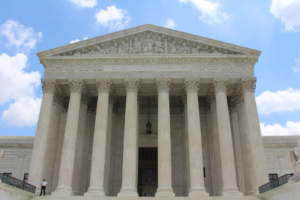These classes could also be significantly pertinent given the potential extraterritorial attain of sure U.S. regulators and that regional legislators could take cues from the US strategy.

The SEC v. Ripple lawsuit is seen as probably the most related enforcement motion by the SEC within the cryptocurrency house. There may be nonetheless a lot pending on the lawsuit agenda, however the blockchain agency has not too long ago seen a major defeat towards the plaintiff.
Ripple has been ordered to ship recordings on the gross sales and advertising and marketing of XRP. That is prone to help the SEC’s case that the agency marketed the digital asset as an funding contract.
That hasn’t bothered the agency’s drive to increase its product vary. It has announced the upcoming launch of Ripple Liquidity Hub to serve enterprises with entry to the biggest cryptos, together with BTC, ETH, LTC, ETC, BCH and XRP.
Within the meantime, SEC v. Ripple stays a precedent-setting lawsuit and is being extensively noticed by legislation specialists, regulators, and market contributors throughout the globe as it’s prone to provoke change sooner or later regulatory framework in america, and create a domino impact in different jurisdictions.
Jones Day, an American worldwide legislation agency primarily based in Cleveland, Ohio, has published an article discussing the SEC’s apply of regulation by enforcement, with a concentrate on the SEC v. Ripple lawsuit, amid the assorted approaches to outline and form the authorized and regulatory panorama for digital property.
The US strategy has created regulatory gaps, overlapping jurisdiction of enforcement businesses, a fancy framework that’s topic to fixed change that has been driving entities to keep away from U.S. jurisdiction. These have nonetheless been subjected to U.S. enforcement motion.
The attorneys at Jones Day have written the doc with the intention to assist market contributors keep away from a number of the frequent pitfalls by gleaning what classes they will from america’ eight-year historical past of cryptocurrency-related enforcement actions.
The paper factors to the unapologetic stance of the SEC in regard to lack of front-end readability, however the SEC appears to be conscious that present guidelines don’t result in a transparent software of legislation for cryptocurrency and that there’s a must legislate an answer to fill in regulatory gaps.
The article affords 5 classes primarily based on current digital asset-related U.S. enforcement actions and is especially goal market contributors within the MENA area, a market the place Ripple has been strongly increasing.
These classes could also be significantly pertinent given the potential extraterritorial attain of sure U.S. regulators and that regional legislators could take cues from the US strategy.
Beneath, we transcribe the 5 classes for the buying and selling business, from regulators to market contributors, as america stays the largest authority within the capital markets even when we disagree with its insurance policies or lack thereof within the digital asset house.
———————————————————————————————————————–
Lesson #1: The SEC Might Effectively Think about Your Digital Asset a Safety
Whereas the SEC has beforehand decided that Bitcoin is a cryptocurrency, a few of its newer actions clarify that the SEC applies securities registration necessities to sure different digital property. In 2017, the SEC issued a report on its investigation of the DAO, a “decentralized autonomous group” or “digital” group embodied in pc code and executed on a distributed ledger or blockchain. The SEC concluded that “DAO Tokens”—the DAO’s cryptocurrency providing—had been “funding contracts,” and subsequently securities, pursuant to Howey. The SEC famous that, until an exemption applies, securities registration necessities apply to each entity that gives or promote securities in america, no matter whether or not it’s decentralized or depends on the automation of sure capabilities by way of a distributed ledger or blockchain.
The SEC has, maybe most notably, demonstrated its willingness to outline cryptocurrencies as securities fairly than currencies in its ongoing enforcement motion towards Ripple. Regardless of vigorous counterargument by Ripple, the SEC has argued extensively that XRP—Ripple’s digital asset providing—was not foreign money as a result of it didn’t qualify as “foreign money” beneath the federal securities legal guidelines, had not been designated as authorized tender in any jurisdiction, and was by no means provided or offered by Ripple as “foreign money.” Relatively, the SEC argued, XRP was an “funding contract,” and thus a safety, beneath Howey.
Alternatively, different U.S. regulators could contemplate a digital asset to be topic to their jurisdiction. In 2020, the CFTC introduced an enforcement motion towards a buying and selling platform providing derivatives on sure digital property. The CFTC claimed that the platform was topic to CFTC jurisdiction as a result of these digital property are “commodities” beneath federal statute. The CFTC additionally charged the platform with failing to register as a futures fee service provider (“FCM”) and violating CFTC rules requiring FCMs to adjust to federal anti-money laundering and know-your-customer obligations. The platform’s alleged violations led to costs by FinCEN and the DOJ as effectively.
Lesson #2: Regulators Will Proceed Pursuing Digital Asset-Associated Enforcement Actions Regardless of Missing Constant Messaging
U.S. regulators have been vigorously pursuing digital asset-related enforcement actions regardless of missing constant steerage. For instance, a pillar of Ripple’s protection is the shortage of contemporaneous, clear steerage from the SEC regarding when digital property represent securities. The SEC has responded that it was not required to challenge clear steerage on this challenge earlier than suing Ripple, and that in any occasion its report on the DAO positioned Ripple on discover that XRP was a safety. Ripple started promoting XRP in 2013, and the SEC’s report on the DAO was not issued till 2017. Thus, even when its report on the DAO created discover, the SEC is implementing for conduct that predates the report.
The SEC isn’t the one U.S. regulator vigorously pursuing digital asset-related enforcement actions regardless of missing constant steerage. In 2020, the CFTC issued a closing rule that, amongst others issues, adopted a brand new definition of “U.S. Individual” that’s narrower in scope and eliminates sure look-through necessities for collective funding automobiles. Nonetheless, the CFTC charged the above-mentioned derivatives buying and selling platform despite the fact that its mother or father firm was organized within the Seychelles and it had insurance policies to forestall U.S. residents from buying and selling. These costs reveal the CFTC’s conviction that derivatives are topic to CFTC enforcement, even when the platform on which they’re traded is operated from outdoors america and ostensibly takes measures to exclude U.S. residents.
Lesson #3: Act Constantly With Your Disclosures
The SEC has been utilizing enforcement actions to focus on buying and selling platforms that make materially false and deceptive statements about their enterprise. For instance, this yr, the SEC charged DeFi Cash Market (“DMM”), a platform that exchanged buyers’ Ether for redeemable tokens. DMM advised buyers that it might use their Ether to buy and personal collateralized loans producing a sure minimal curiosity, which buyers may redeem primarily based on the quantity of their principal. DMM, nonetheless, didn’t really personal these loans—a company affiliate did. Whereas buyers finally didn’t undergo any loss and had been paid their promised curiosity, the SEC sued DMM anyway, premised largely on the allegation that DMM didn’t act persistently with what it represented.
Additionally this yr, the SEC charged BitConnect, a cryptocurrency lending platform, with defrauding retail buyers by way of an unregistered providing. To draw buyers, BitConnect represented that it might deploy a “buying and selling bot” that will use investor funds to generate returns of as excessive as 40% a month. It additionally represented that buyers may commerce “BitConnect Coin” (“BCC”) for Bitcoin (and vice versa) on the “BitConnect Change” by way of peer-to-peer transactions. In actuality, BitConnect siphoned off buyers’ cash for its personal profit, engaged in a Ponzi scheme with buyers’ funds, and retained custody of most BCC tokens traded on its change. BitConnect additionally failed to inform buyers that it had two kinds of fee for promoters, each of which had been paid from investor funds. The SEC thus charged BitConnect for each alleged unfulfilled guarantees and alleged omissions of fabric data.
Lesson #4: Be Clear and Real looking About Industrial Dangers Related With Digital Belongings
U.S. regulators usually contemplate it incumbent upon contributors to evaluate and disclose industrial dangers to buyers. For instance, in its motion towards BitConnect, the SEC alleged that BitConnect marketed extraordinary returns by way of its “Lending Program” of as much as 2% each day, with no adverse returns for any day, and a median each day return of roughly 1%, or roughly 3700% on an annualized foundation.
Equally, in its case towards DMM, the SEC alleged that DMM didn’t account for or disclose dangers that fluctuations within the tokens’ principal (Ether) could be realized as features or losses when the tokens had been redeemed. As a substitute, DMM used new investments to, amongst different issues, offset the redemptions, fairly than shopping for new collateralized property as represented to buyers.
Lesson #5: Thoughts Your Geography
The SEC has more and more been prepared to conduct digital asset-related enforcement actions towards firms and individuals with non-U.S. bases of operation and focus, even when they enact measures towards promoting merchandise to U.S. residents. Within the case of DMM, a Cayman Islands firm, DMM’s web site was used to promote DMM’s preliminary coin providing (“ICO”), however the web site was publicly obtainable and never geographically restricted. DMM additionally expressly invited U.S. residents to take part within the first stage of the ICO. It tried to restrict the second stage of the ICO to non-U.S. residents through the use of an IP blocker, however that did not work.
Likewise, BitConnect was an unincorporated group that registered a number of firms in the UK, and its founder was an Indian nationwide. To help jurisdiction, the SEC’s criticism referenced the acts of BitConnect’s worldwide community of promoters and their actions in america, which included soliciting new accounts from U.S. residents through social media and BitConnect’s sponsoring of promotional occasions in america.
Within the case of the above-referenced derivatives buying and selling platform, the platform’s mother or father firm was registered within the Seychelles and the platform enacted measures—albeit ineffective—to forestall doing enterprise with U.S. residents. One of many platform’s cofounders was a U.Ok. citizen and Hong Kong resident, indicating the CFTC’s, FinCEN’s, and the DOJ’s willingness to prosecute international nationals whose companies have interaction with U.S. residents. These regulators cite a number of situations the place the platform’s cofounders sought to bypass U.S. rules, together with by organizing the platform’s mother or father firm within the Seychelles the place it was allegedly simpler to bribe regulators, asking U.S.-based buying and selling corporations to include offshore entities to open buying and selling accounts on the platform, and mendacity in depositions about monitoring the platform’s actions inside america.
Three Key Takeaways
Whereas it’s troublesome to foretell whether or not native legislators and regulators will undertake the U.S. regulators’ approaches to digital property, market contributors in MENA ought to have interaction with their advisors and regulators from an early stage to make sure they’ve—or not less than can reveal that they sought to acquire—the suitable degree of steerage concerning the necessities relevant to their digital property.
Till extra constant messaging evolves and is issued by the U.S. and international regulators, these working in MENA must be cognizant of each native regulatory regimes in addition to any worldwide legal guidelines and rules which will have extraterritorial impact on their enterprise.
If MENA-based market contributors make inaccurate disclosures in reference to digital property, whether or not by deceptive assertion or omission, they expose themselves to enforcement threat, even when buyers don’t really undergo a loss.




